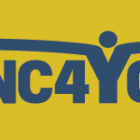
California Guarantees Chance at Parole for Juveniles Facing Life Sentences
|
With the signature of Governor Jerry Brown, California, minus a few exceptions, joins the handful of states that guarantee an opportunity at parole to juveniles convicted of murder. After serving 15 years, most of California’s roughly 300 so-called juvenile lifers will get a chance to ask for something they thought they would never see: a reduced sentence. The new law allows judges to reduce a life-without-parole sentence to a 25-years-to-life sentence. That means the possibility of an appointment with the parole board. “It’s very exciting, it’s huge,” said Dana Isaac, director of the Project to End Juvenile Life Without Parole at the University of San Francisco School of Law.







